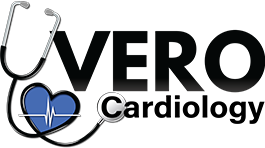Stress Echocardiography
Stress echocardiography, a revealing diagnostic tool, has emerged as a critical component in the assessment of cardiovascular health. This specialized imaging technique combines echocardiography with physical or pharmacological stress, providing healthcare professionals with unique insights into the heart's response to increased workload and unveiling potential cardiac abnormalities.
At the core of stress echocardiography is the use of ultrasound imaging to visualize the heart's function before, during, and after inducing stress. Stress can be induced through physical exercise on a treadmill or stationary bicycle, or pharmacologically using medications that simulate the effects of exercise. This approach allows for the evaluation of the heart's response to stress and can unmask underlying coronary artery disease, valve disorders, or other cardiac abnormalities that may not be apparent during resting conditions.

During stress echocardiography, the ultrasound transducer captures real-time images of the heart at various stages of stress. Changes in heart rate, blood pressure, and contractility are closely monitored, providing a comprehensive assessment of cardiac function and detecting any abnormalities that may be indicative of reduced blood flow to the heart muscle.
Stress echocardiography is particularly valuable in diagnosing coronary artery disease, a condition where the blood flow to the heart muscle is restricted due to the buildup of plaque in the coronary arteries. By inducing stress, healthcare professionals can identify areas of the heart that may not be receiving an adequate blood supply, helping to pinpoint the location and severity of coronary artery blockages.
One of the notable advantages of stress echocardiography is its non-invasive nature, eliminating the need for more invasive procedures like coronary angiography for initial diagnostic purposes. It offers a safe and effective means of evaluating cardiac function, especially for individuals who may have limitations or contraindications to exercise stress testing. Moreover, stress echocardiography provides valuable information for risk stratification and treatment planning. The results can guide healthcare professionals in determining the appropriate interventions, such as lifestyle modifications, medications, or invasive procedures, tailored to the individual patient's needs.
In conclusion, stress echocardiography stands as a powerful diagnostic tool in the cardiovascular armamentarium, offering a comprehensive assessment of cardiac function under stress conditions. This non-invasive and informative technique plays a pivotal role in the early detection and management of cardiovascular diseases, contributing to more personalized and effective patient care.




